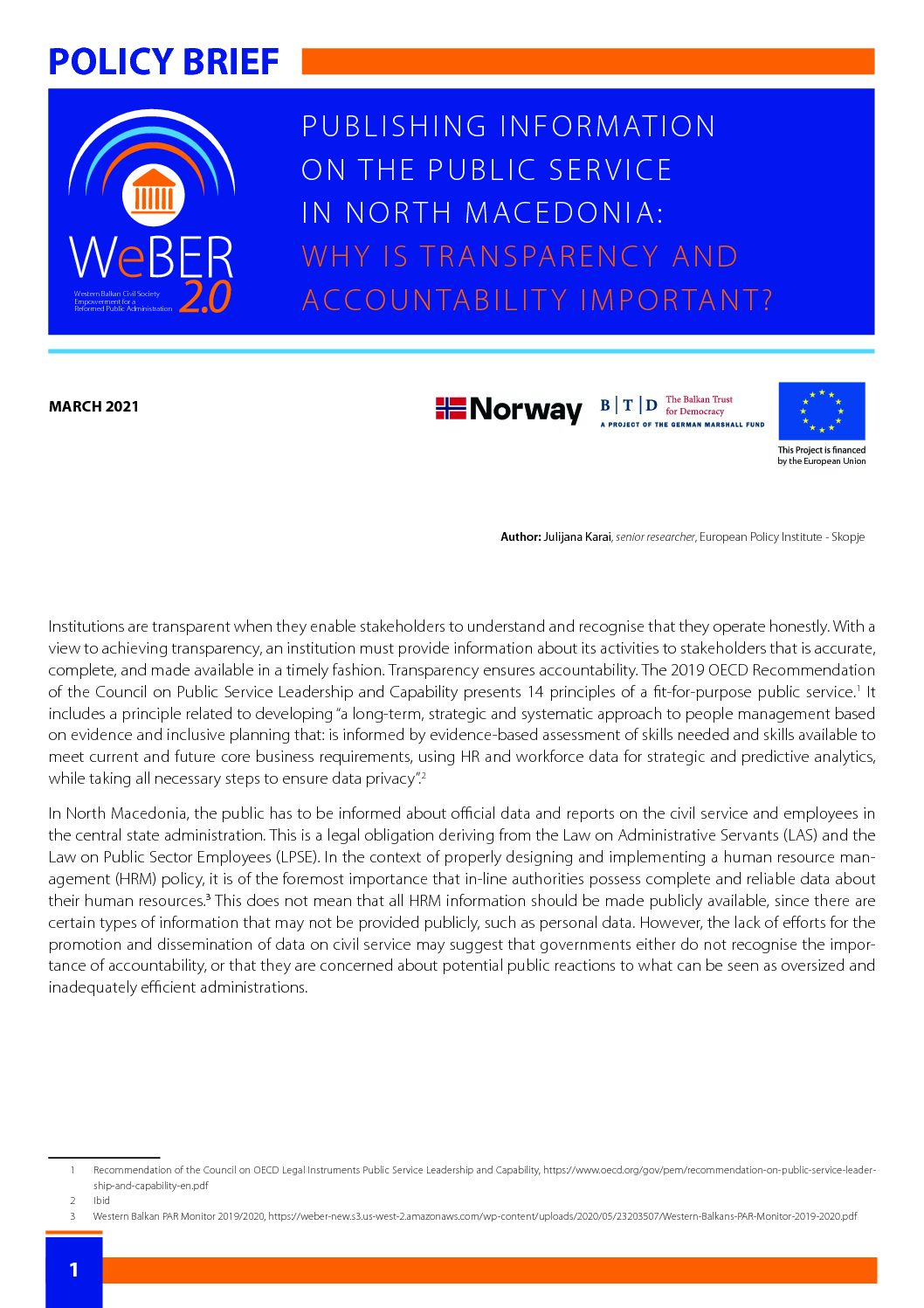Institutions are transparent when they enable stakeholders to understand and recognise that they operate honestly. With a view to achieving transparency, an institution must provide information about its activities to stakeholders that are accurate, complete, and made available in a timely fashion. Transparency ensures accountability. The 2019 OECD Recommendation of the Council on Public Service Leadership and Capability presents 14 principles of a fit-for-purpose public service. It includes a principle related to developing “a long-term, strategic and systematic approach to people management based on evidence and inclusive planning that: is informed by an evidence-based assessment of skills needed and skills available to meet current and future core business requirements, using HR and workforce data for strategic and predictive analytics, while taking all necessary steps to ensure data privacy”.
In North Macedonia, the public has to be informed about official data and reports on the civil service and employees in the central state administration. This is a legal obligation deriving from the Law on Administrative Servants (LAS) and the Law on Public Sector Employees (LPSE). In the context of properly designing and implementing human resource management (HRM) policy, it is of the foremost importance that in-line authorities possess complete and reliable data about their human resources. This does not mean that all HRM information should be made publicly available, since there are certain types of information that may not be provided publicly, such as personal data. However, the lack of efforts for the promotion and dissemination of data on civil service may suggest that governments either do not recognise the importance of accountability or that they are concerned about potential public reactions to what can be seen as oversized and inadequately efficient administrations.

